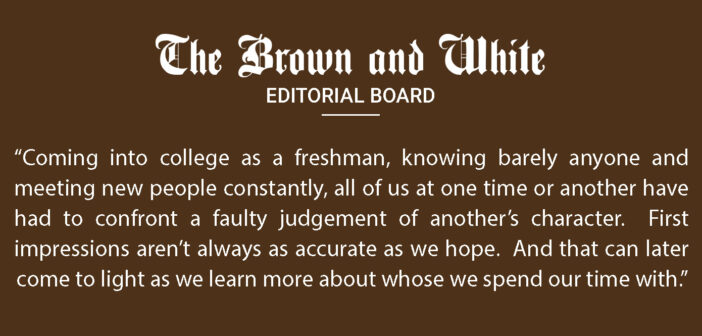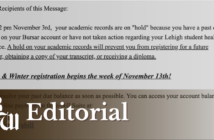If you’re on your phone, scrolling through the day’s news or your social media feed, odds are you’ll find yourself reading something about the ever-prevalent Johnny Depp v. Amber Heard trial.
First meeting on the set of “The Rum Diary” in 2009, it was love at first sight for the two, despite their both being in relationships at the time. Depp and Heard were married by 2015.
However, the two divorced 15 months later and the hardships of their relationship became public with allegations of domestic abuse, most notably in Heard’s 2018 op-ed for The Washington Post in which she discussed the treatment of women in domestic abuse cases.
After these allegations, Depp sued Heard on grounds of defamation.
So why are we talking about this?
Now, we’re not here to chat about all-things celebrity gossip and Hollywood’s biggest pop-culture disasters. But, we do believe that such a case brings up an important topic relevant to almost any student body — that is, toxic relationships.
If we’re being candid, relationships in college can be confusing. Whether it’s a romantic relationship or a friendship, there’s a fine line dividing those which are healthy and unhealthy. To make things harder, the majority of college students cannot distinguish between the two.
Coming into college as a freshman, knowing barely anyone and meeting new people constantly, all of us at one time or another have had to confront a faulty judgment of another’s character. First impressions aren’t always as accurate as we hope. And that can later come to light as we learn more about those we spend our time with.
It is a pitfall to which many of us succumb. Entering college, we’re relatively young — many of us having never been in a romantic relationship before — and wanting to find that rom-com kind of relationship.
Regardless of what you’re looking for, that “perfect person” isn’t always what you expect and toxic cycles unfortunately aren’t uncommon.
In a world where random acts of kindness seem to compensate for lying or ignoring text messages and calls, it’s important for college students to know the signs of toxic relationships and physical and emotional abuse.
While we’re no experts, as we are college students ourselves, we certainly may offer some advice:
There is a wide range from which emotional abuse may be recognized. It can follow the lines of demanding one’s whereabouts at all times or public insults. We may be exposed to it immediately in a relationship, or it may intensify over time.
Regardless of how it’s done, abusers then tend to carry out good deeds to compensate for their behavior, often resulting in the other’s trust.
Controlling behavior and walking on eggshells to prevent scrutiny are tell-tale signs of a toxic relationship. Unfortunately, because college is one of the best places to make new friends and form romantic relationships, college students are overwhelmingly vulnerable to this. The signs may begin to blur with our socially-motivated needs.
Situations like these can be confusing, as we mentioned. But, there are ways in which individuals can evaluate the possibility of a toxic relationship — specifically with attention to the following six categories: disrespect, inequity, lack of care, lack of fulfillment and lack of boundaries.
When going to a relatively small school, like Lehigh, it can be difficult to distance yourself from such a situation. Constantly seeing people you know as you walk across campus, you’re bound to run into someone you maybe don’t want to.
There are a multitude of challenges when it comes to leaving unhealthy relationships, this sharing-space issue included. But, it’s essential that we respect and trust ourselves as we navigate the challenges, while having a strong support system to hold ourselves up.
College is a period of large flux in our lives. While we find ourselves looking into the future career-wise, future relationships can be prioritized as well.
By being involved in toxic relationships throughout this early stage in our lives, we may find ourselves being attracted to abusive partners now and in the future.
Thus, it’s important that us students help one another when it comes to involvement in toxic relationships by recognizing the signs, while also holding abusers accountable and trying to prevent such behavior from happening.
One must also recognize when it is their place to step in to advise a friend, but also when advice can come across as overbearing. A proper support system is essential, but at the end of the day you are in control of your own life and how you respond in relationships.
When it comes to toxic relationships, the one thing we cannot afford to have is inaction.






Comment policy
Comments posted to The Brown and White website are reviewed by a moderator before being approved. Incendiary speech or harassing language, including comments targeted at individuals, may be deemed unacceptable and not published. Spam and other soliciting will also be declined.
The Brown and White also reserves the right to not publish entirely anonymous comments.